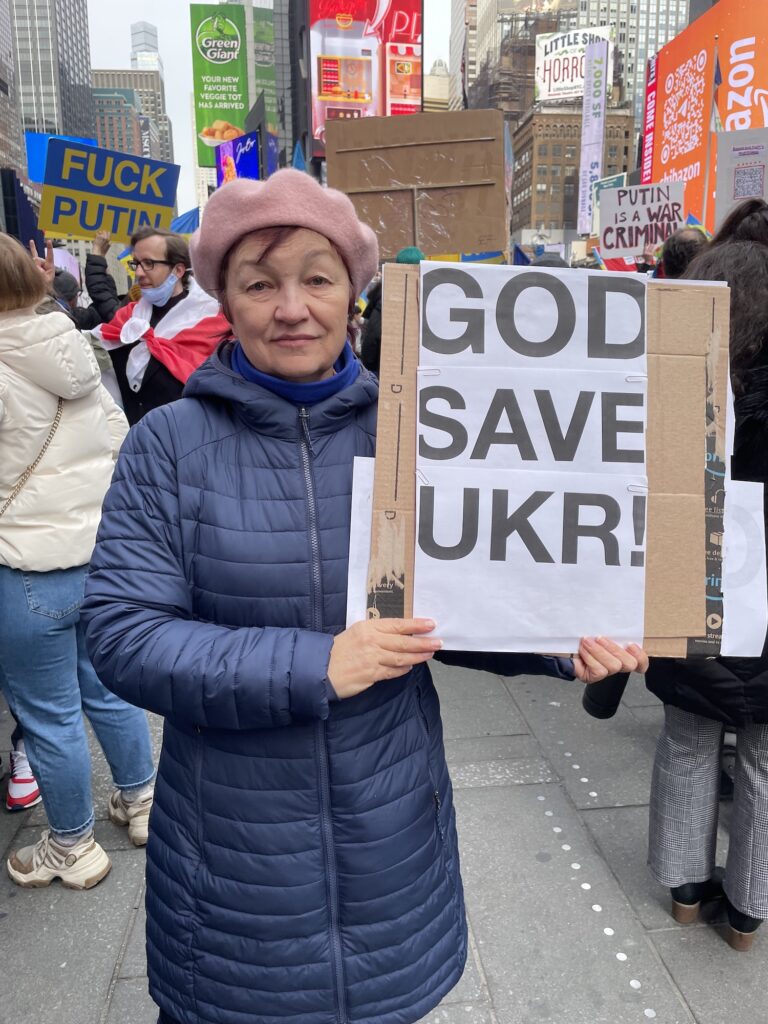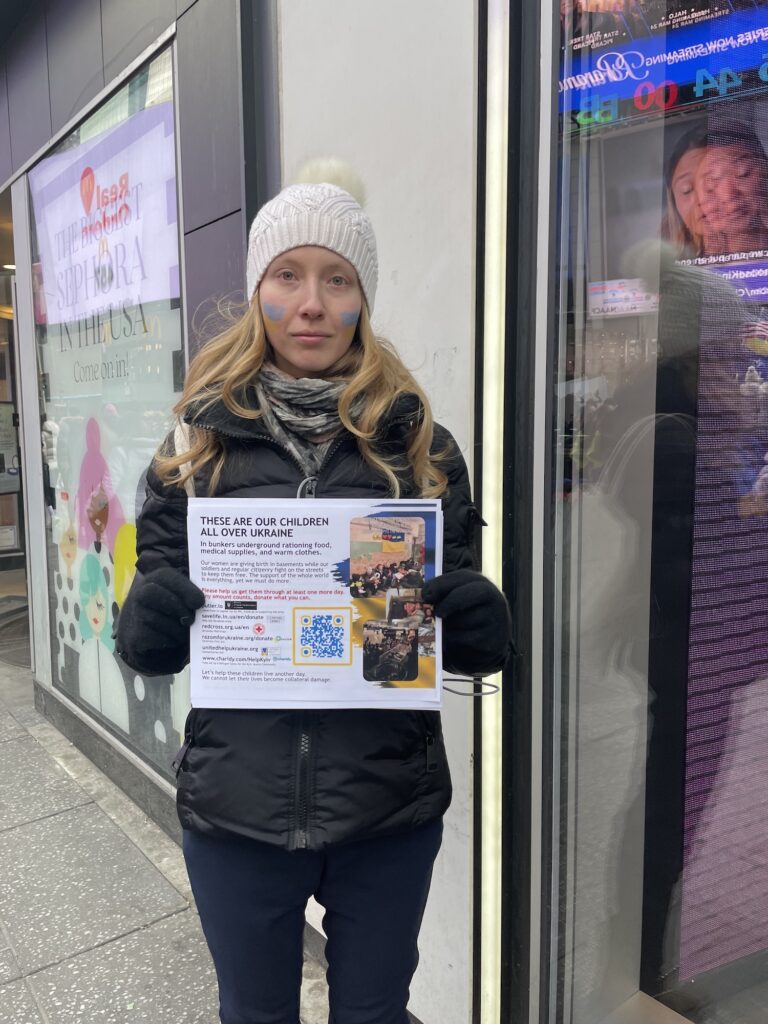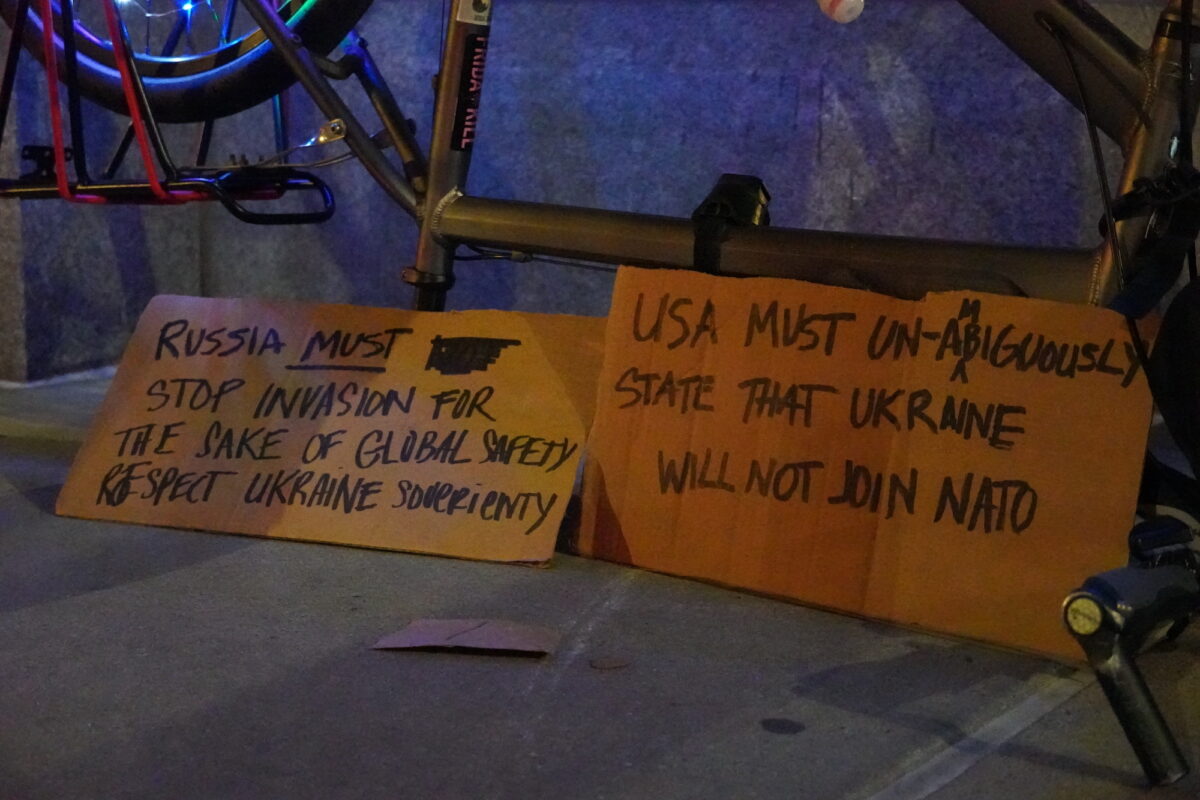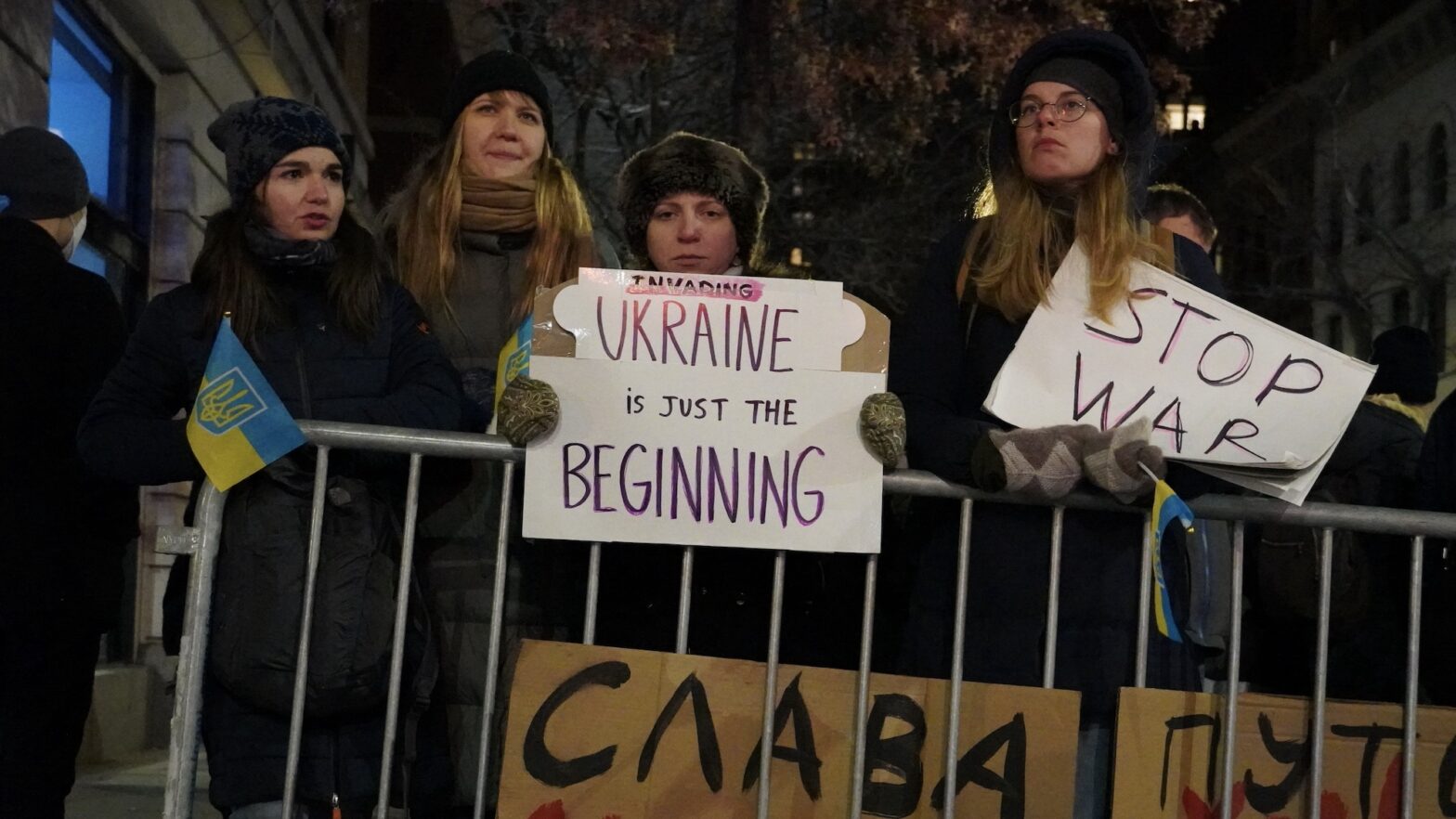Thousands have rallied across New York City to protest Russia’s invasion of Ukraine since it began almost three weeks ago.
Protests ranged from solemn gatherings outside the Russian consulate to energetic rallies in Times Square. While many attended in solidarity with the people of Ukraine, others had personal connections to the country.
Mariana Kovalchuk, who grew up in the western Ukrainian city of Lviv, attended a Feb. 24 rally with Russian friends near the New York Russian Consulate, which had barricades and police presence in front of it, just hours after the invasion began.
“[Putin] basically denies the right of Ukrainian people to have their own identity, their own nationalistic pride,” Kovalchuk said, holding a Ukrainian flag. “We are this very unique people and this right cannot be taken away from us.”
Kovalchuk said she’s concerned for the safety of her family and friends in Lviv, who lack access to adequate bomb shelters.
Speaking from a Times Square rally March 5, Natalia Zhukovskaya, who is Russian and lived in Ukraine for 25 years, said she’s spent the last few weeks worrying about her son and his family, who are still living in the country and recently moved to a small village to avoid danger.
“Every time when we have night time it’s day for [those in Ukraine] and I don’t sleep before the morning,” Zhukovskaya said, tears falling from her eyes. “Nights [are a] dangerous time of day [in Ukraine].”

Standing in a sea of yellow and blue, Zhukovskaya described the acceptance she felt when she first moved to the country, noting that Ukrainians would speak in Russian to her when they realized that she was still learning Ukrainian. She characterized Putin’s decision to invade Ukraine as “crazy.”
Countries including the United States have placed sanctions on Russia, targeting industries such as finance, energy and private wealth, and large companies including Apple, Disney, H&M, McDonalds, Microsoft, Nike and Starbucks have followed their lead by halting sales in Russia. Online platforms and services like TikTok and Netflix have also limited services within the country.
World leaders including U.S. Vice President Kamala Harris have called for an international war crimes investigation into Russia’s attacks on civilians, which included the bombing of a maternity hospital on Wednesday. As of Thursday, the United Nations reported 564 civilian deaths since Feb. 24, most of which were caused by explosive weapons.
Protestor Anastasiia Bannikova also has family in Ukraine. Standing to the side of the March 5 protest, she held a stack of flyers, passing them out to anyone who would take one. Each flyer listed six different websites that people can use to donate to specific Ukrainian causes, which can all be reached through a QR code.

“When it started, I was a little bit shocked and I didn’t know how to help and a lot of friends of mine, Americans, were asking me where they could donate,” Bannikova said. “So I put together six different sites for different causes: humanitarian, first aid, army, Red Cross and [the] Jewish community in Ukraine.”
In addition to supporting Ukrainians financially, Bannikova encourages Americans to attend protests in support of peace in the region, from which over 3 million refugees have fled since Feb. 24, according to The UN Refugee Agency.
Other protesters also drew connections to the invasion from their personal histories.
“My father was a Holocaust survivor and he was born in the town of Ivano-Frankivsk, which is now part of Ukraine,” Daily Kos political director David Nir said at the Feb. 24 protest. “My family has ties to that part of the world and I feel it’s important to stand up for people who, in a different history, could have been my countrymen.”
Protesters said they hope to see the U.S. government take further action to protect Ukrainians, who have been dealing with this wave of Russian aggression since 2014.
“Providing more military support would be great because as much as our army is more prepared than they were eight years ago when the war actually started, they still could use a lot of help and whatever help is given to them,” Kovalchuk said.
The U.S. House of Representatives approved an additional $13.6 billion spending bill dedicated to military support and humanitarian aid for Ukrainians on Wednesday, and President Joe Biden is expected to announce an additional $800 million in military aid to Ukraine this Wednesday.
Speaking on Feb. 24, Nir said he hoped to see Russia removed from SWIFT, an international banking cooperative that connects financial institutions around the world. The White House and other western countries committed to this move in a joint statement Feb. 26, resulting in the removal of seven Russian banks from SWIFT so far.
“That will be a crippling move to undermine Putin’s finances and that of his oligarchs,” Nir said.

Recent protests have focused on urging NATO to enact a no-fly zone over Ukraine, a move requested by Ukrainian President Volodymyr Zelenskyy. A student-led rally took place at Union Square on Friday, and another Times Square protest took place Saturday.
Among crowds of protesters were a number of children, many standing besides their parents calling for peace.
11-year-old James Weber, who asked his dad to take him to the Feb. 24 rally, expressed compassion for Ukrainians at this time, and hopes that other children take a stand too.
“Ukraine [sic] people are crying right now and they’re hurt and some of them are dead,” Weber said.








Leave a Reply